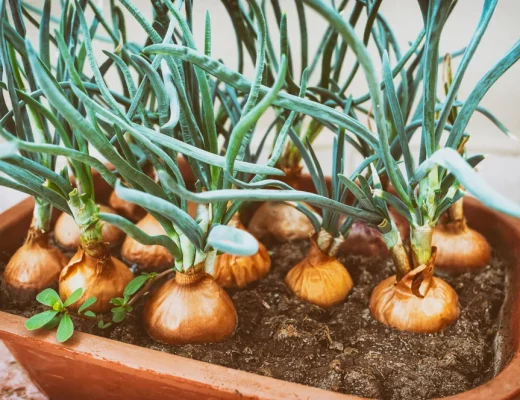Wondering, “Do I have hard water?” Also wondering, “If so, why does it matter?” Learn the definition and effects of hard water here.
When it comes to home water supplies, there are few problems as common as hard water. Hard water is caused by an excess of calcium and magnesium, and, while not dangerous, it can result in a number of cosmetic and functional problems.
Wondering “do I have hard water”? Depending on your location, you just might. Below, we’re going to get into the specifics of hard water, discussing not only its geographical variation but its effects and what you can do about it.
Let’s get into it!
Do I Have Hard Water?
The answer to this question is dependent on your geographical location. If your geographical location is characterized by calcium and magnesium-rich soil, hard water is likely a problem for you. Conversely, if your soil is lacking in calcium and magnesium, hard water won’t be a problem for you.
In the United States, the areas with the hardest water include the great plains, the southwest and small portions of the midwest. Note, however, that hardness varies even within these areas.
For instance, just because the southern portion of Arizona has hard water doesn’t mean that the northern portion does as well.
To assess the hardness of the water in your area, you’re advised to look at this map from the USGS. It provides a rough estimate of water hardness throughout the entirety of the United States.

Signs of Hard Water
Often times, the best way to determine the existence of hard water is to look out for specific signs. If you’re noticing these signs on a regular basis, you are almost undoubtedly dealing with hard water.
Limescale Buildup
One of the most common signs of hard water is limescale buildup. Limescale is a white, powdery substance that appears on metal sinks, faucets, and showerheads. It’s essentially the remnants (calcium and magnesium particles) of evaporated hard water.
While limescale has no functional effect on a home, it does have a cosmetic effect. This is to say that the existence of limescale can do a lot to drag down a home’s overall appearance. As such, it’s typically deemed a problem.
Reduced Water Pressure
Another sign that you might be dealing with hard water is that your water pressure has reduced gradually over time. This occurs due to mineral buildup on the interior walls of water pipes. The more calcium and magnesium that are allowed to buildup on the insides of these pipes, the less room there is through which water can flow.
You won’t notice a big difference at first. However, when the problem becomes severe enough, you won’t be able to ignore it. In fact, in the most severe cases, it can restrict water flow entirely, effectively rendering plumbing useless.
Prematurely Deteriorating Water Appliances
Hard water not only has an effect on water pipes but on water-based appliances as well. As calcium and magnesium build up inside of these appliances, they begin to take on wear and tear. This results not only in reduced efficiency but in premature deterioration as well.
The appliances that are most prone to this problem include dishwashers, water heaters, refrigerators, and the like. Any water appliance that’s used on a consistent basis can succumb to a hard water-related death.
Brittle Hair
We’ve discussed how hard water can affect your possessions. But did you know that it can affect your body as well? Your hair is a particular target for hard water, drying out and growing brittle as a result of prolonged contact with it.
Do you have split ends on a regular basis? Does your hair tend to break in half? If so, hard water could very well be the culprit.
Dry Skin
Even more troubling than hard water’s effect on the hair is hard water’s effect on the skin. When the calcium and magnesium in hard water make contact with the skin, they cling, clogging up pores and preventing the body from secreting necessary oils.
As a result, the skin becomes exceedingly dry. In some cases, this can even lead to skin issues such as acne and eczema.
Can You Eliminate Hard Water?
As you can see, hard water comes with a number of negative effects. As such, you might be wondering: can you eliminate hard water? The answer is yes and it’s actually quite a common thing to do.
All you need is a water softener. Water softeners operate through the ion-exchange process, swapping out calcium and magnesium particles in exchange for sodium particles. In doing so, they eliminate the “hard” aspect of the water, optimizing it both cosmetically and functionally.
A whole-home water softener system can run anywhere from a few hundred dollars to a few thousand dollars. The larger your water supply, the more you’ll need to pay.

Should You Eliminate Hard Water?
Now you know that you can eliminate hard water. But should you? The answer is really up to you.
See, hard water is not dangerous in any way. Apart from some minor skin and hair issues, it’s not going to do any damage to your body. As such, its eradication is not vital.
That said, there are a number of benefits to gain from doing away with hard water. Softening your water will not only preserve your water pipes but your water-based appliances as well. Not to mention, it will prevent limescale buildup, helping to maintain the aesthetic of your home as a whole.
In the end, you have to weigh the pros against the cons. But if you have the money to spare, we recommend installing a water softener sooner rather than later.
Looking for Other Such Tips?
Now that you know the answer to the question of “do I have hard water?”, you might be searching for other useful info. If so, you can find it right here at our website.
We cover a range of topics, including home improvement, health, fitness, and more. Check out our other articles now!




